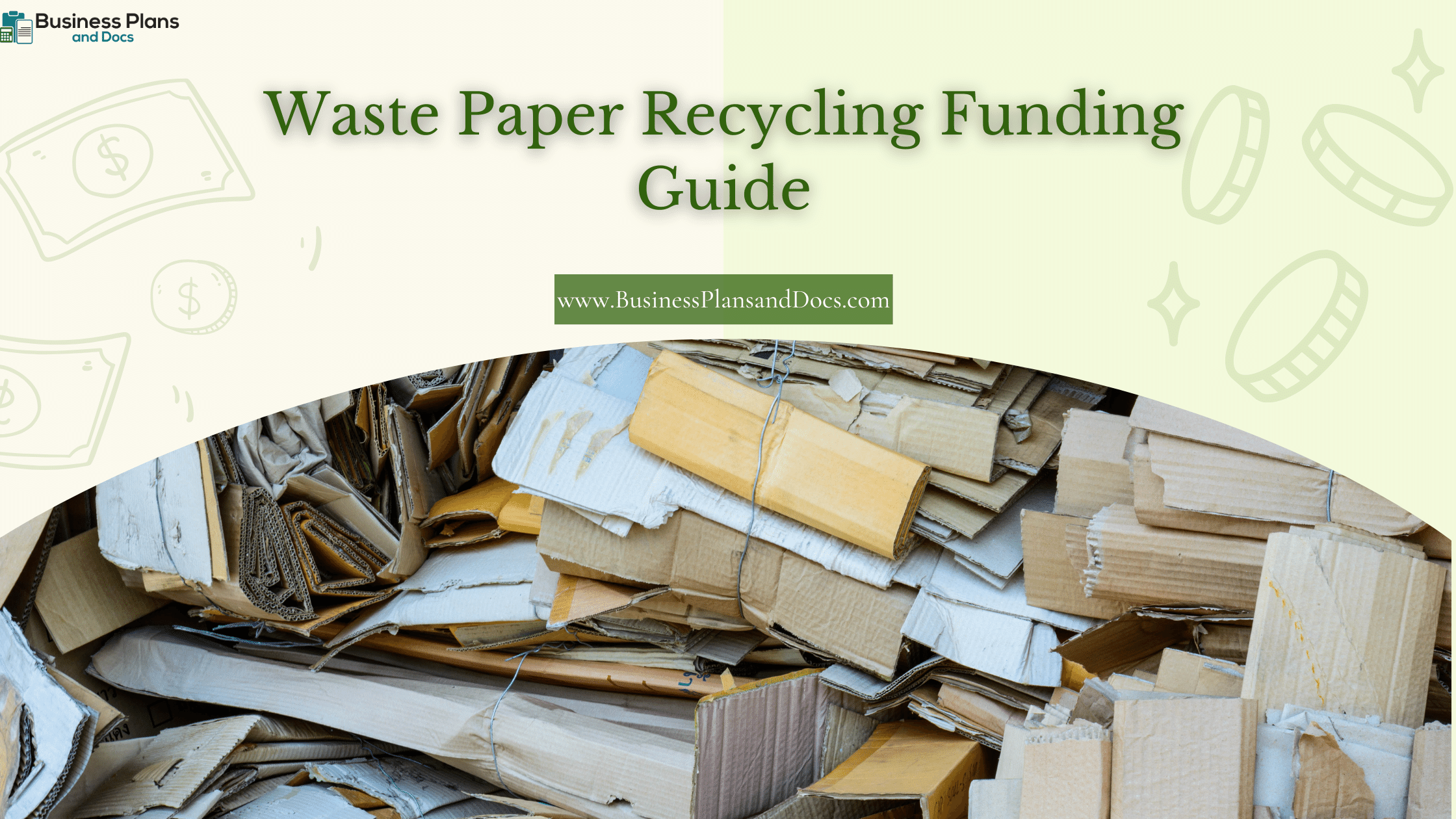Welcome to the comprehensive guide on waste paper recycling funding! In today’s world, where environmental concerns are becoming increasingly urgent, recycling is more important than ever. One key aspect of recycling is waste paper management. By recycling paper, we not only conserve natural resources but also reduce energy consumption and pollution. However, initiating or expanding waste paper recycling initiatives requires funding. In this guide, we will explore various avenues for funding waste paper recycling projects, whether you’re an individual, a community organization, or a business. Let’s delve into the world of waste paper recycling funding!
Understanding the Need for Funding
Waste paper recycling is crucial for several reasons. Firstly, it helps in conserving natural resources like trees, water, and minerals used in paper production. Secondly, it reduces greenhouse gas emissions associated with paper production, contributing to mitigating climate change. Additionally, recycling paper reduces the amount of waste sent to landfills, thus alleviating pressure on landfill capacity and minimizing environmental pollution. However, establishing and maintaining effective waste paper recycling programs requires financial resources for collection, transportation, sorting, and processing. Without adequate funding, these initiatives may struggle to sustainably manage waste paper, undermining the environmental benefits of recycling.
Government Grants and Subsidies
One primary source of funding for waste paper recycling initiatives is government grants and subsidies. Many local, regional, and national governments offer financial assistance to support recycling programs. These grants may cover various aspects of waste paper recycling, including equipment purchase, infrastructure development, and public awareness campaigns. Additionally, governments often provide subsidies to recycling companies or municipalities to incentivize the recycling of specific materials, including paper. To access government funding, organizations typically need to submit proposals outlining their recycling objectives, anticipated outcomes, and budget requirements. By tapping into government grants and subsidies, waste paper recycling initiatives can receive the financial support needed to thrive and expand.
Corporate Sponsorship and Partnerships
Another avenue for funding waste paper recycling projects is through corporate sponsorship and partnerships. Many businesses are increasingly recognizing the importance of environmental sustainability and are willing to support recycling initiatives as part of their corporate social responsibility (CSR) efforts. Companies may provide financial assistance, in-kind donations, or technical expertise to help establish or enhance waste paper recycling programs. Additionally, businesses can partner with recycling organizations or municipalities to co-fund projects and leverage each other’s resources and networks. Corporate sponsorship not only provides financial support but also enhances the visibility and credibility of waste paper recycling initiatives, attracting more stakeholders and fostering community engagement.
Crowdfunding and Community Fundraising
In recent years, crowdfunding has emerged as a popular alternative funding mechanism for various causes, including waste paper recycling. Platforms like Kickstarter, Indiegogo, and GoFundMe allow individuals and organizations to raise funds from a large number of people, often through online campaigns. Waste paper recycling projects can create compelling campaigns highlighting their environmental impact and the benefits of supporting recycling efforts. By engaging with the community and leveraging social media and other digital channels, recycling initiatives can attract donations from individuals passionate about environmental conservation. Additionally, communities can organize fundraising events, such as charity auctions or recycling drives, to raise funds for local recycling programs. Crowdfunding and community fundraising empower individuals to contribute directly to waste paper recycling initiatives, fostering a sense of ownership and collective responsibility for environmental stewardship.
Grants from Environmental Organizations
Environmental organizations and foundations dedicated to promoting sustainability and conservation often provide grants to support waste paper recycling projects. These grants may target specific geographical areas, environmental priorities, or community needs, providing targeted funding for recycling initiatives. Organizations like the Environmental Protection Agency (EPA), National Recycling Coalition (NRC), or local environmental NGOs offer grant opportunities for waste paper recycling programs. To secure grants from environmental organizations, applicants typically need to demonstrate the environmental benefits, community impact, and sustainability of their recycling projects. By aligning with the missions and priorities of these organizations, waste paper recycling initiatives can access financial resources and expertise to implement and expand their programs.
To learn more on how to plan your own Waste Paper Recycling Business, click here!
Conclusion
In conclusion, funding is essential for the success and sustainability of waste paper recycling initiatives. Whether through government grants, corporate sponsorship, crowdfunding, or support from environmental organizations, there are various avenues for securing financial resources for recycling projects. By tapping into these funding sources and leveraging community support, waste paper recycling initiatives can make significant strides in conserving natural resources, reducing pollution, and mitigating climate change. As individuals and organizations, we all have a role to play in supporting and championing waste paper recycling efforts for a cleaner, greener future. Let’s join hands and invest in the circular economy by funding waste paper recycling projects in our communities. Together, we can make a positive impact on the environment and build a more sustainable world for generations to come.

About the author. A lifetime of Entrepreneurship.
Hi! My name is Shawn and I am a happy individual who happens to be an entrepreneur. I have owned several types of businesses in my life from a coffee shop (link here http://archives.starbulletin.com/2003/05/18/business/index.html) to an import and export business to an online review business plus a few more and now I create online resources for those interested in starting new ventures. It’s demanding work but I love it. I do it for those passionate about their business and their goals. That’s why when I meet new business owner, I see myself. I know how hard the struggle is to obtain and retain clients, finding good employees and making sure everything works together all while trying to stay competitive.

